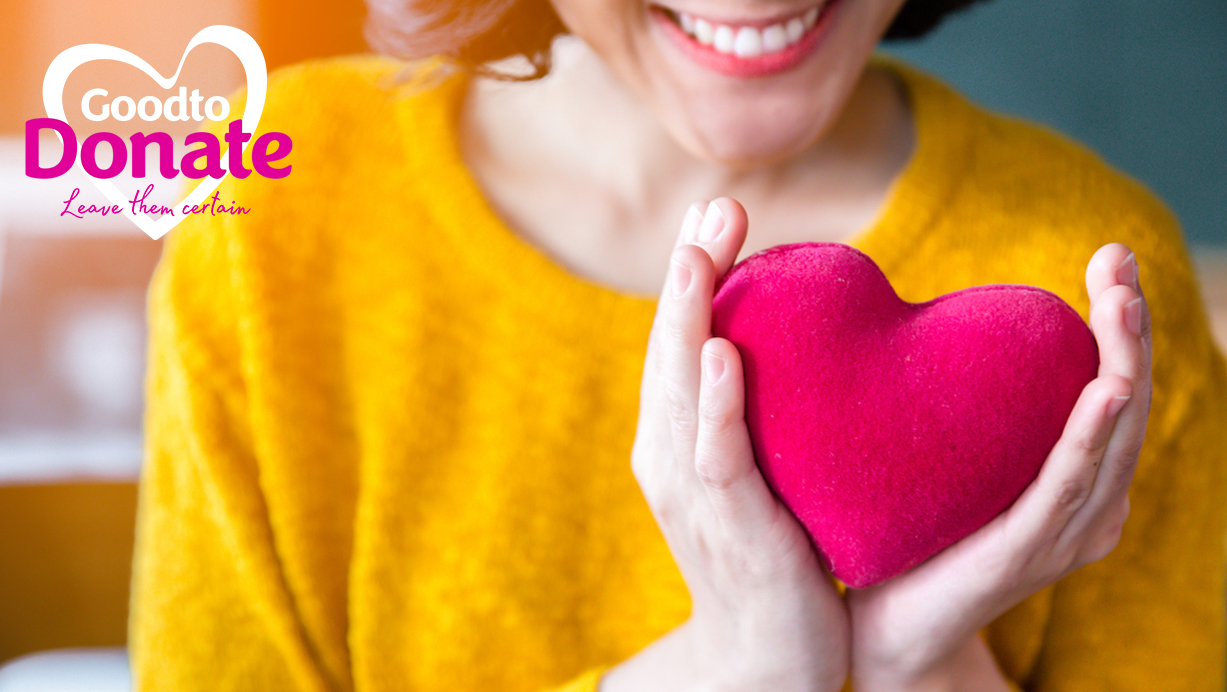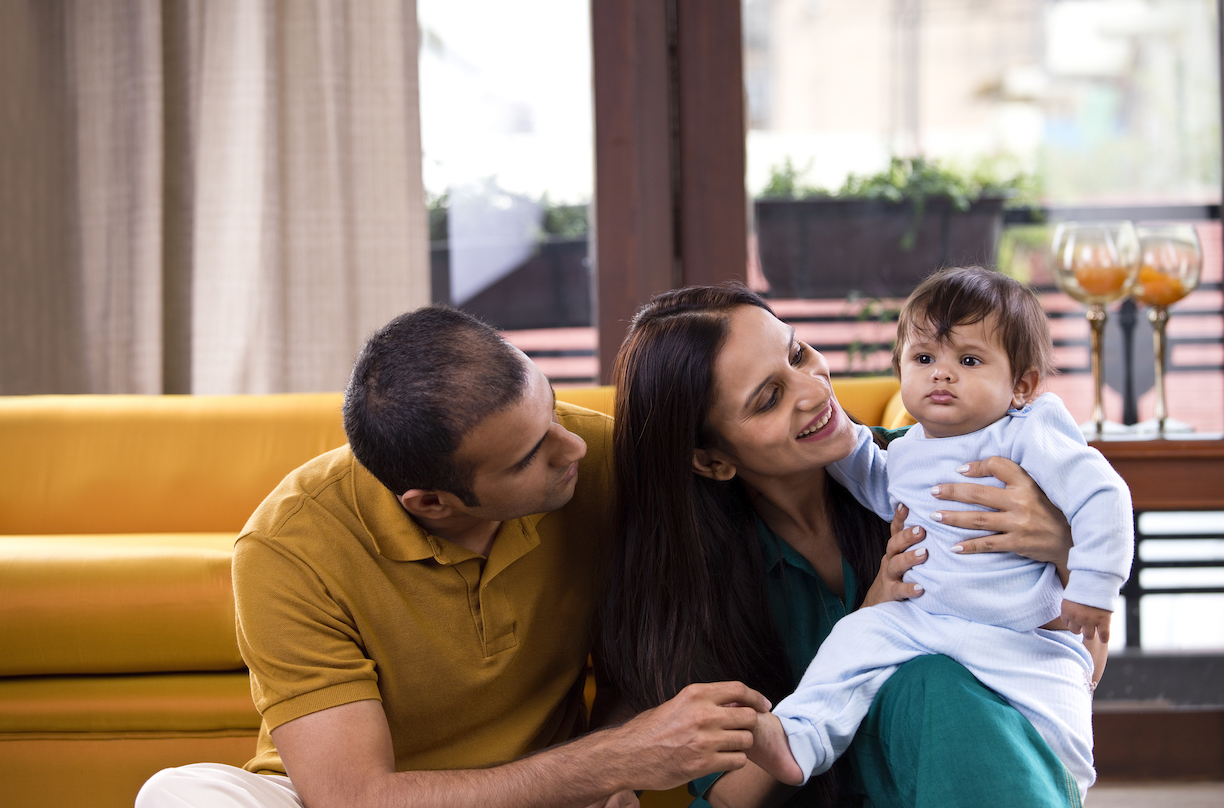What happens when you become an organ donor?

Parenting advice, hot topics, best buys and family finance tips delivered straight to your inbox.
You are now subscribed
Your newsletter sign-up was successful
You could save or transform the lives of up to nine people if you choose to donate your organs when you die and many more by donating tissue. That's why sharing your decision with your loved ones is so important.
So what happens when you become an organ donor? Learn more about the choices you have when recording your decision on the NHS Organ Donor Register – and what to tell your family to help them to understand too.
Choosing to be an organ donor
When registering your decision to be an organ donor, you can choose what organs you’d want to donate. This could be all, or some of them, including your kidneys, heart, liver, lungs, pancreas and/or small bowel. You can also donate your tissues – including heart valves and arteries, skin, bone and even your corneas.
The most important thing to do is to let your family know so that they understand and support your choices. While 80% of people in England think it’s important to share their decision about organ donation with their loved ones, just under 40% have done so.
One of the biggest reasons preventing organ donation from going ahead is families being unsure of what their loved ones would have wanted. Having this conversation now could save or improve the lives of others, and help your family be sure of your decision at a difficult time.
In this video, families talk about how they had the conversation about organ donation - and why it’s so important to talk about your decision
What can you donate?
Your heart
Someone may need a heart transplant due to diseases that have weakened the heart muscles or caused blockages in the vessels that lead to the heart. Cardiomyopathy and coronary heart disease are the two most common reasons for heart transplants and receiving a donor heart may often be someone’s only chance of survival.
Parenting advice, hot topics, best buys and family finance tips delivered straight to your inbox.
Unfortunately there are more people waiting for a heart transplant than there are donor hearts. If you make the decision to donate your heart, be sure to speak to your loved ones so that they understand and support this.
Your lungs
Why do people need lung transplants? The lungs are crucial for the flow of oxygen around the body. When they become damaged or they are diseased, it can make someone seriously unwell. If you choose to donate your lungs, tell your family so they know this is what you want.
Your liver
The liver is the largest bodily organ and a vital part of the digestive system. It supports almost every other organ in the body, meaning that even 24 hours without a fully functioning liver can be life-threatening. A liver transplant can be transformative for someone living with liver failure so make sure you share your decision with your family if you’d want to donate this organ when you die.
Kidneys
Both of your kidneys can be donated after your death and may be used for two separate transplants. Why do people need a kidney transplant? The kidneys balance the amount of fluid and minerals in the body and create hormones – when someone’s kidneys aren’t working properly, they need dialysis to perform some of these vital functions.
Pancreas
The pancreas creates insulin which helps the body regulate blood sugar levels. Patients with Type1 diabetes are unable to produce insulin properly and a life-saving pancreatic transplant is needed if someone is living with advanced diabetes and end-stage kidney failure. There is a long wait for this transplant as a donor kidney is also required. Registering your organ donation decision, and telling your family, could save or improve the life of someone waiting for a pancreatic transplant.
Small bowel
When the small bowel doesn’t work, usually someone will need to take in nutrition through a drip into their veins. Sometimes when this isn’t possible, complications can develop and a patient may require a small bowel transplant. If you have made the decision to donate your small bowel, speak to your family and loved ones, so they understand and support your decision.
Your tissues
Donating your tissues when you die can help to improve the lives of others. You can choose to donate your skin, bone, tendons, heart valves and arteries.
You can also donate your corneas. There are currently not enough corneas available for transplant – so if you decide to donate ‘the gift of sight’, you would be saving and restoring someone’s eyesight. Don’t forget to tell your family this is what you’d like to do, so they can support this decision.

Why might someone need a transformative tissue transplant?
- Skin grafts for people suffering with serious burns.
- Bone donation for those who have experienced injury or loss due to illness. This can help reduce pain and increase mobility.
- Heart valve donations for babies born with heart defects and adults with damaged heart valves.
- Cornea donation for people with sight problems caused by eye disease, infection or birth defects.
Visit NHS Organ Donation to find out more about what you can donate, and for advice on your choices and how to record your decision – remember whatever you decide talk with your loved ones to give them the certainty they need to support it.
Trusted, informative, and empathetic – GoodToKnow is the ultimate online destination for parents. At GoodtoKnow, our mission is 'simple': we're trying to make sense of parenthood. On the site, you'll find everything you need for a happy, healthy family life. Our huge archive of content includes more than 18,000 articles and 1,500 how-to videos. These include expert-backed advice features on parenting, dealing with relationship changes after having a baby, self-care for mums and managing your family finances. We also feature tried-and-tested product reviews and buying recommendations for every stage of family life - from prams and Moses baskets to birthday gifts and top toys.